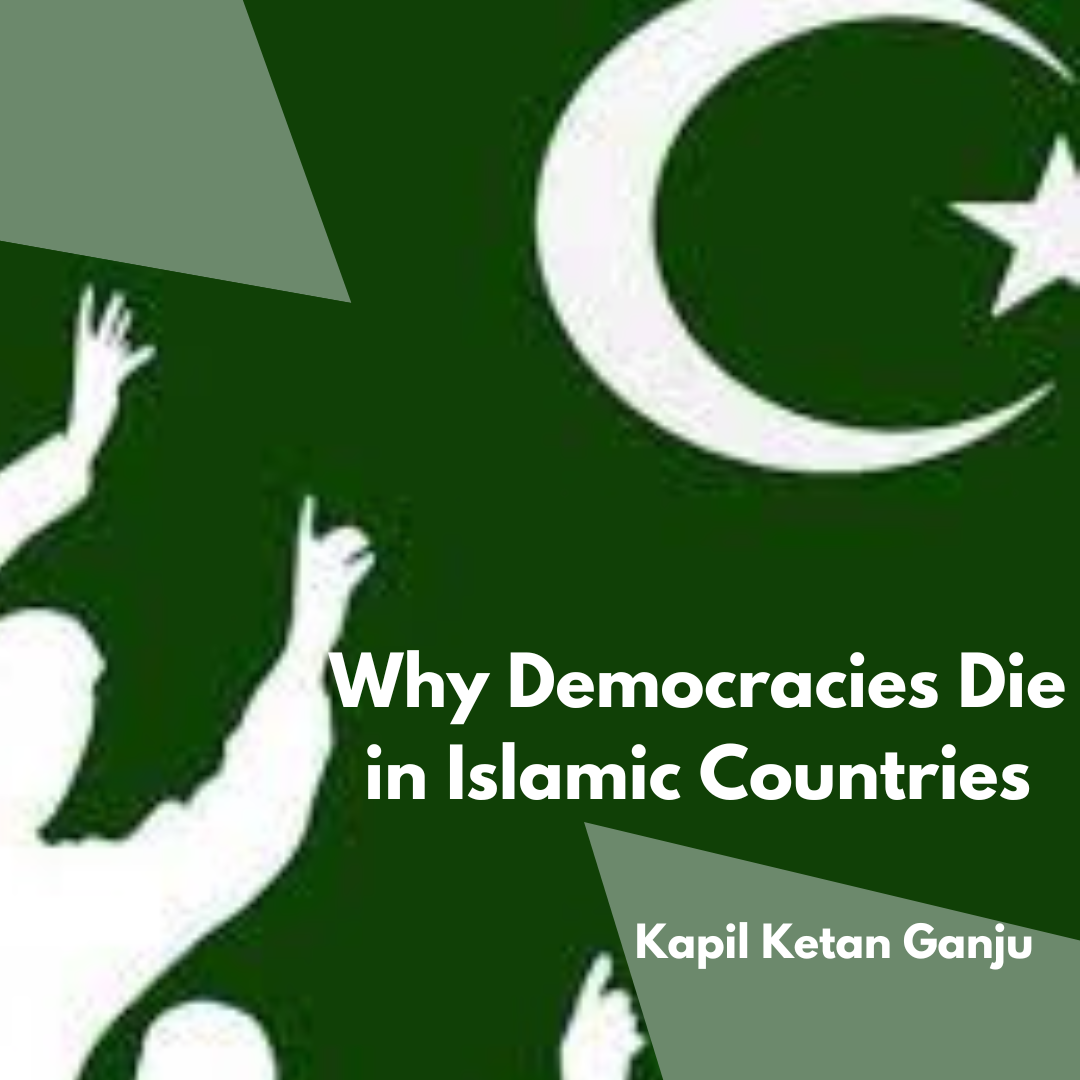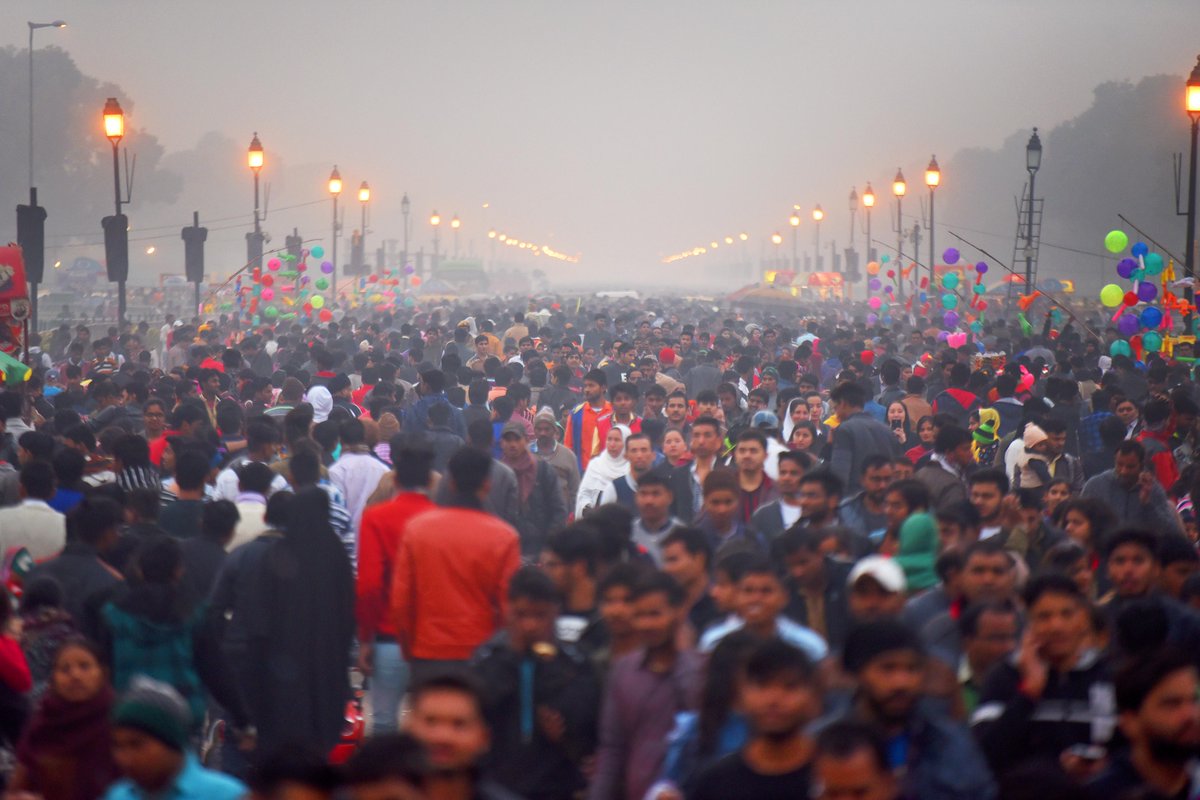- Visitor:30
- Published on: 2024-09-03 11:01 am
Why Democracies Die in Islamic Countries

Democracies are often nipped in the bud in the Islamic states for multifarious reasons. Whereas some concerns are to be pitched into the scriptural sectarianism, others deem fit into the socio-political standardizations. This article investigates into the various reasons why democracies fail in the Islamic states.
The Sharia Law
The quintessential nature of the Islamic doctrine is fundamentally undemocratic. Islamic clergies (Mullah, Muftis, Imams) tend to impose the Sharia laws which subdue women and all non-Muslims to the extent of dehumanization. Sharia’ is a religious law and a part of ‘Islamic (prophetic) traditions’. In Arabic this term means ‘God’s divine law’. Hence, there is no place for the modern secular laws in the Sharia. As per the Sharia law, women and minority groups are always at a disadvantage and Sharia laws would not provide any rights to them. Now, in democracies everyone is free to choose its government under ‘Universal Adult Franchise’ once a person attains legal adulthood. Every individual has personal rights and ‘Equality Before Law and Equal Protection of Law’ is a landmark achievement of democratic system. Given the fact that the Islamic nations have been ruled by dictators since the inception of Islamic state, it would be hard to think of a democratic system as well. Now, in the modern contemporary world, we live in the era of technology where situations are changing on a daily basis but, unfortunately, Sharia is a 1400-year-old law. No change is applicable in Sharia law as per Islamic clerics.
Muslims believe that the way prescribed by the Islam is only way to achieve heaven after death and no other religion or God is eligible to be worshipped. Hence, in Islamic Sharia law, every non-Muslim should convert to Islam or pay Jizya, the religious tax for non-Muslims. Secondly, in Islam, women are considered the root of impurity and, subsequently, inferior to men. So, voices of women are considered less important. They live a life in order to subjugate themselves to men in the house. So, the core tenets of Islamists have a thorough anti-democracy stance ab initio.
Sectarian Divisiveness
The sectarian divisiveness is another aspect that hinders the democratic ground. Muslims are divided into multiple sects which posit to be antagonistic to each other on dogmatic nuances. For instance, the Sunni sects believe that Prophet Muhammad (founder of Islam) had no successor from bloodline. They have four major schools or thoughts, known as Hanafi, Shafi, Maliki, and Hanbali. In the Indian subcontinent, they are further divided into Deobandis and Barelvis. On the other hand, the Shia sectss believe that the successor of Muhammad should be from blood lineage. So, they believe that Ali (Son-in-Law of the Prophet) is the true successor. They have several schools of thoughts called Ismailism, Jafri, and Zaidiyyah etc. Similar to these, a certain section of the Muslims believe in Sufi (saintly) traditions. The major Sufi sects are Bektashi, Mawlawi, Chisti, Naqshbandi, Qadiri, Suharavardi, and Noorbakshia. The division is further polarized by continual developments as well. For example, previously, the Bohras were Ismaili Shias, but they got split in 1094 CE due to the dispute for the Imamate succession. They have some of the important sects like the Dawoodi Bohra, Jafari Bohra, Sulemani Bohra, Alevi Bohra etc. Among many Muslim communities, they are not associating themselves with Shia, Sunni etc. since they believe in the Quran but deny the Hadith. There are sects among them too (e.g. Quranism, Ahl Al-Quran, and Quraniyoon). Wahhabis, on the other hand, are also non-denominational but they believe in Quran and Hadith both. But, they believe in Allah without paying much attention to the massager (Prophet). After the death of Muhammad, many people claimed themselves the “Rightly Guided” messenger of Allah. Followers of these people are called ‘Mahdi’. They have various Sects like Ahmadiyya, Mahdavia, Zikri, and Faradian etc. They too are hated by the Shia and Sunni alike. Another group called Khawarji, who were former followers and supporters of Ali, rebelled against him in the battle of Siffin in 657 AD. Now, they too are unaccepted in the larger Muslim world and they have sub-sects like Ibadiyya and Azzabes. These divisions led the Muslims to remain fragmented and pitted against each other, without any wish to come in coordination. This, inevitably, leads to dampening the spirit of democracy.
Racial Issues
Now, if the sectarian divisions were not enough, the racial discriminations come to fill in the gap. Apart from many ‘sects’ and ‘sub-sects’ in Islam, there are racially divided sections in their countries. Let us take the example of the Pakistan-Afghanistan disputes. In 1896, the British merged Eastern Afghanistan with India known as ‘Northwest Frontier Province’ for 100 years by imposing the Durant line. In 1947, due to Muslim majority, the Northwest Frontier went with with Pakistan. Later, Pakistan divided this region into two parts ‘Khyber Pakhtunkhwa’ and ‘Fata’. Now, Pakistan had to surrender this region to Afghanistan in 1996. Hence, Pakistan imposed Taliban on Afghanistan. But, today, Pakistan is being torn apart by the same group. Talibani terrorists are of Pathan origin who ruled the Pakhtunkhwa and the Fata (Frontier region). Meanwhile, Baluchistan is fighting for its independence against Pakistan. Baluchistan is a vast people situated between Pakistan, Iran, Afghanistan and Oman, with a population of 13 million Baloch people. The exact origin of the word Baluch is unclear. But, today, Baluchis have a dream to create their own nation. In 1947 British Baluchistan became an independent nation under the king of Kalat. But, in 1948, after Pakistan invaded Baluchistan and 27th March, 1948, Baluchistan was acceded by force during Jinnah’s regime on 31st March. Since then Baluchis are fighting for their independence from Pakistan which leads to civil wars in 1948, 1958-59, 1962-63, 1973-77, and with a low level insurgency since 2003. It is known as ‘Sistan and Baluchistan’ province in Iran. Here, Sistani people are Shias and Baluch are Sunnis. Iran is a Shia country and Sunni Balochis are facing discrimination. Since 2004, low level insurgency has been going on in Iranian Baluchistan. Junadullah started this insurgency. Now, these regional divides are destroying Pakistan. Even Sindh and its coastal city, Karachi, the economic lifeline of Pakistan, are now rebelling against it under the garb of ‘Sindhudesh’. These divides are destroying Pakistani democracy from the inside. The Kurdistan, on the other hand, is divided between Turkey, Iran, Iraq and Syria. It has an area larger than Rajasthan and a population of 40 million. During World War I, the Ottoman Empire (Osmania) and European superpowers integrated Kurdistan with these four nations. But, Kurds want their own independent nation for themselves. The Dersim rebellions were the first Kurdish wars for independence but they were suppressed by Mustafa Kemal, the then president of Turkey. Kurdistan has 45 billion barrels of oil and massive reserves of gases which make it a very important strategic place. Most of the Kurds are Muslims but they follow secular states, allowing Christianity, Zoroastrianism, Yarsanism, Yazidism, Alevism, and Judaism to run concurrently. Because of these, the larger Islamist groups hate the Kurds. Apart from secularism, the Kurds have also protected womens’ rights even after the 1979 Islamic Resurgence. However, because of this, in Iraqi Kurdistan, Saddam Hussein, massacred 150,000 Kurds, using chemical weapons in 1998.
Political Issues
On the other hand, the Tuareg issue is a burning cause. The Tuareg people are from the Berber community of the Sahara Desert. They are traditionally nomadic pastoral groups. Their region lies in Mali, Niger, Algeria and Libya— the four North African Islamic countries. Tuareg people are repeatedly revolting against these four countries in order to get their own country ‘Azawad’ for Tuareg. Tuaregis were involved in various armed conflicts involving the northern parts of Mali and Niger and Western part of Libya. In 2012, in the Mali War, they claimed Northern Mali ‘Azawad’ as a separate country but finally they lost the battle to ‘Ansar Dine’, an Islamic Jihadi organization, and the then Mali’s army overtook the territory from them. In the Libyan civil wars from 2014-2020, Tuareg people overtook the South-Western Mali and they are ruling it as an autonomous body. Now, the Tuareg insurgency in North Africa is gaining momentum as well.
Afghanistan fell into turmoil in 1979 when the Soviet Union invaded Afghanistan. The US, with the partnership of Pakistan, trained and armed Mujahidin to wage a war against the Soviet troops. After the Soviet Union left in 1989, Mujahideen fought a civil war against their own government and countrymen. In 1996, the Taliban (Islamic Jihadis) overtook the power. In that era, North-Western part of Afghanistan was ruled by the ‘Northern Alliance’, free from Islamic Jihadis. General Abdul Rashid Dostam (Uzbek) and Ahmed Shah Masood (Tazik) were ruling Afghanistan in these regions. Now, in Afghanistan, Taliban was unable to overtake the North-Western part because Taliban is a Pathan (Gilzai) ethnic group while Taziks, Turkomen, Uzbeks joined the ‘Northern Alliance’ against the Pathans of Taliban. Even Baluch in Southern Nimruz province waged a war against the Taliban. From 1996-2001, the Talibani rule in Afghanistan was full of turmoil and war. In 2001, US invaded Afghanistan and the non-Pathan ethnic minorities favored US, paving a way to enter Afghanistan. But, after 20 years, again Taliban overtook Afghanistan in August 2021.
Opinion
As we discussed, the Islamic countries are undemocratic by nature and in this article we have mentioned the situations why democracy is failing in the Islamic world. Now, all the efforts to create democratic states in the Islamic world have failed badly and none of the Islamic nations has achieved permanent democracy anywhere because, in Islam, apart from the conflicts with the Non-Muslims, they have their own conflicts. Each and every sect and sub-sect in Islam believes that their version of Islam is true and they have imposed their versions of Islam on others. On the other hand, there are regional and racial conflicts among them too. So, in the beginning, they have to fight with Kafirs but, when Kafirs are exterminated, they will again fight with each other over the “correct” version of Islam they follow. Hence, in the Islamic countries, clashes are so rampant that for any democratic government it is impossible to rule the citizens.
- 15 min read
- 0
- 0










